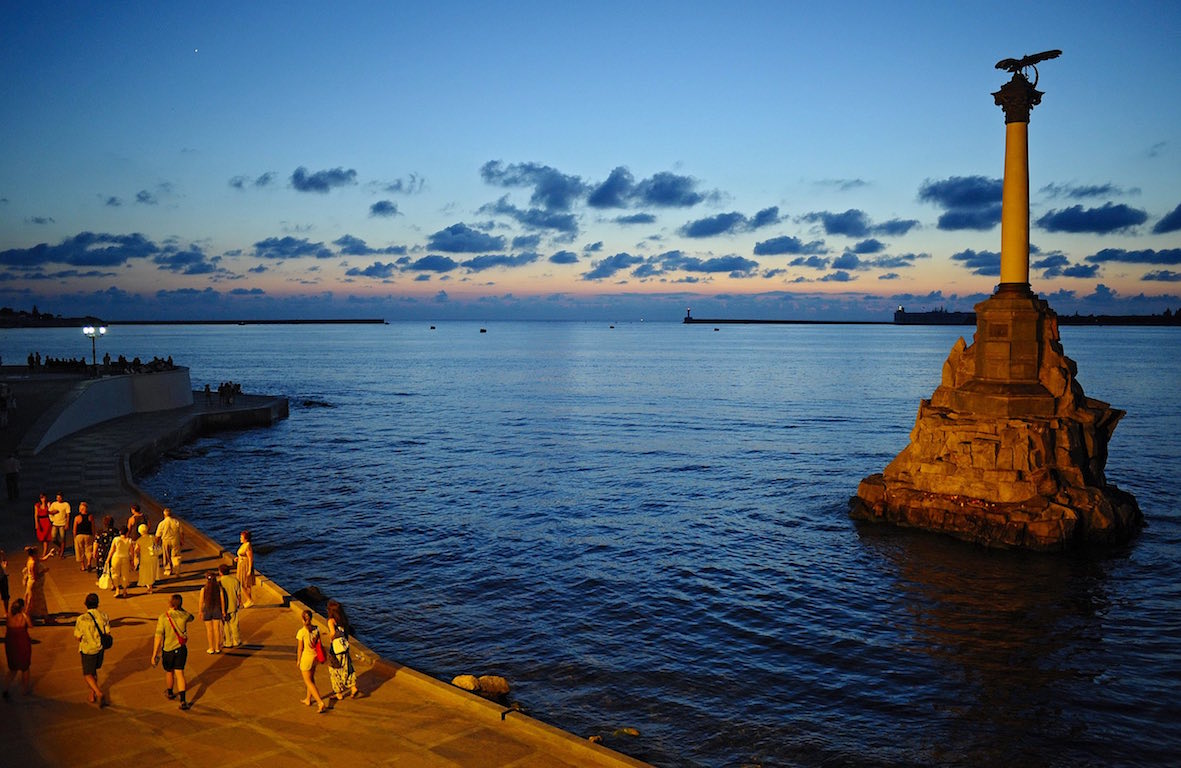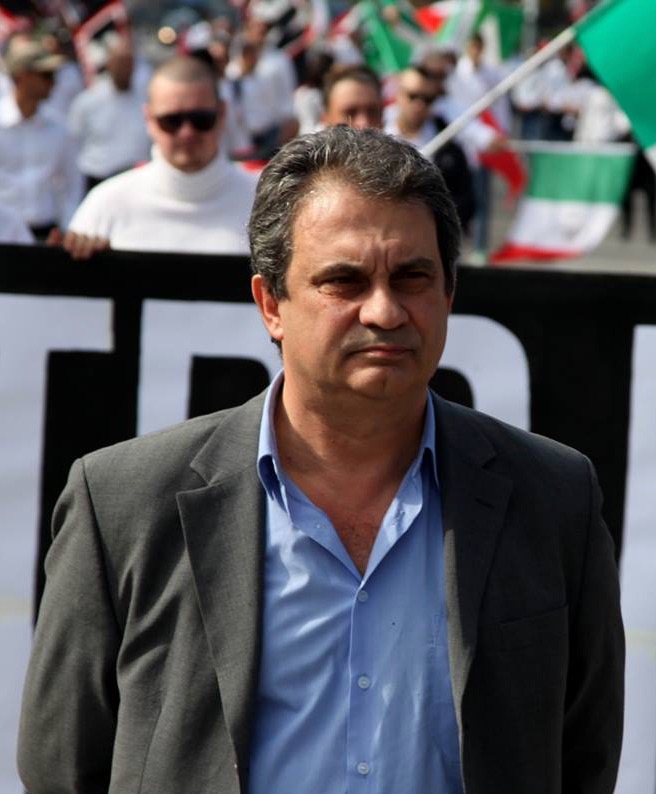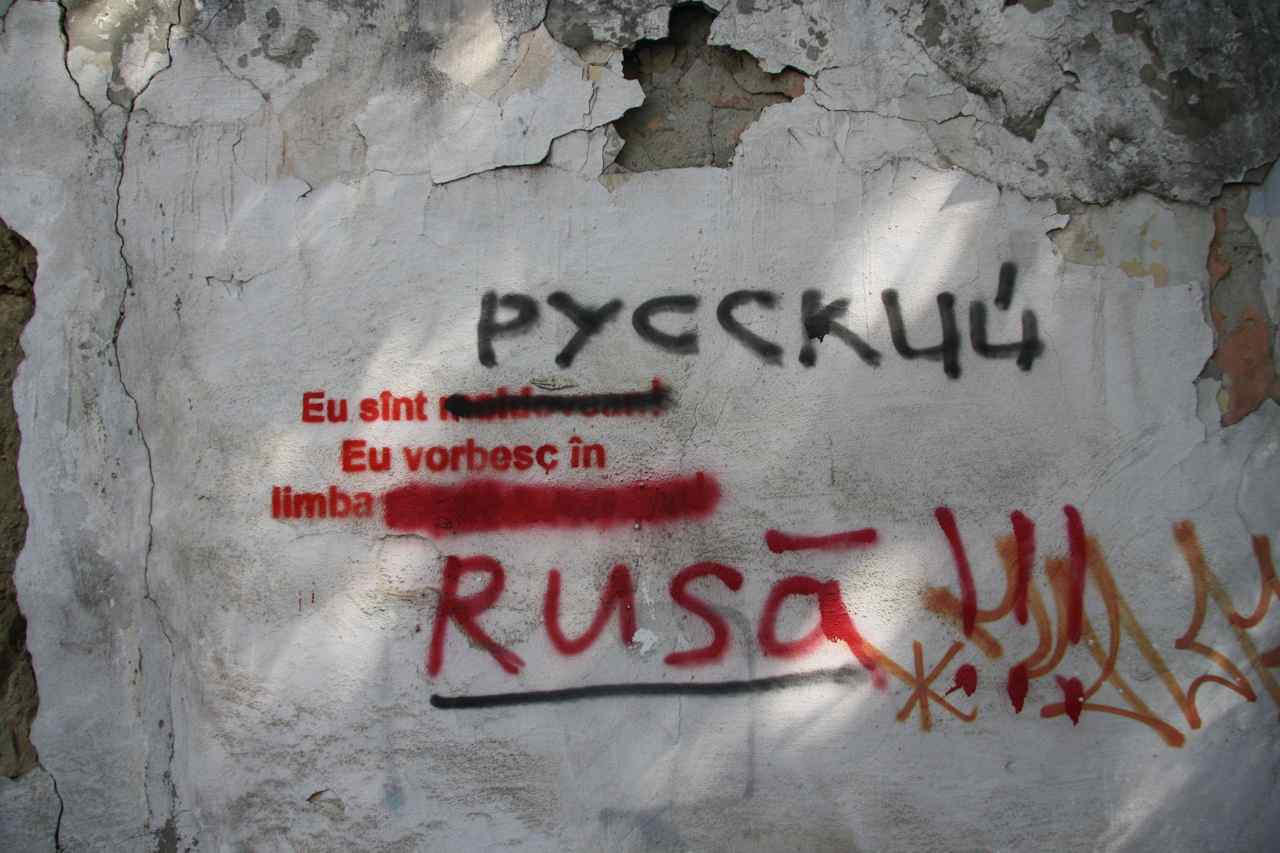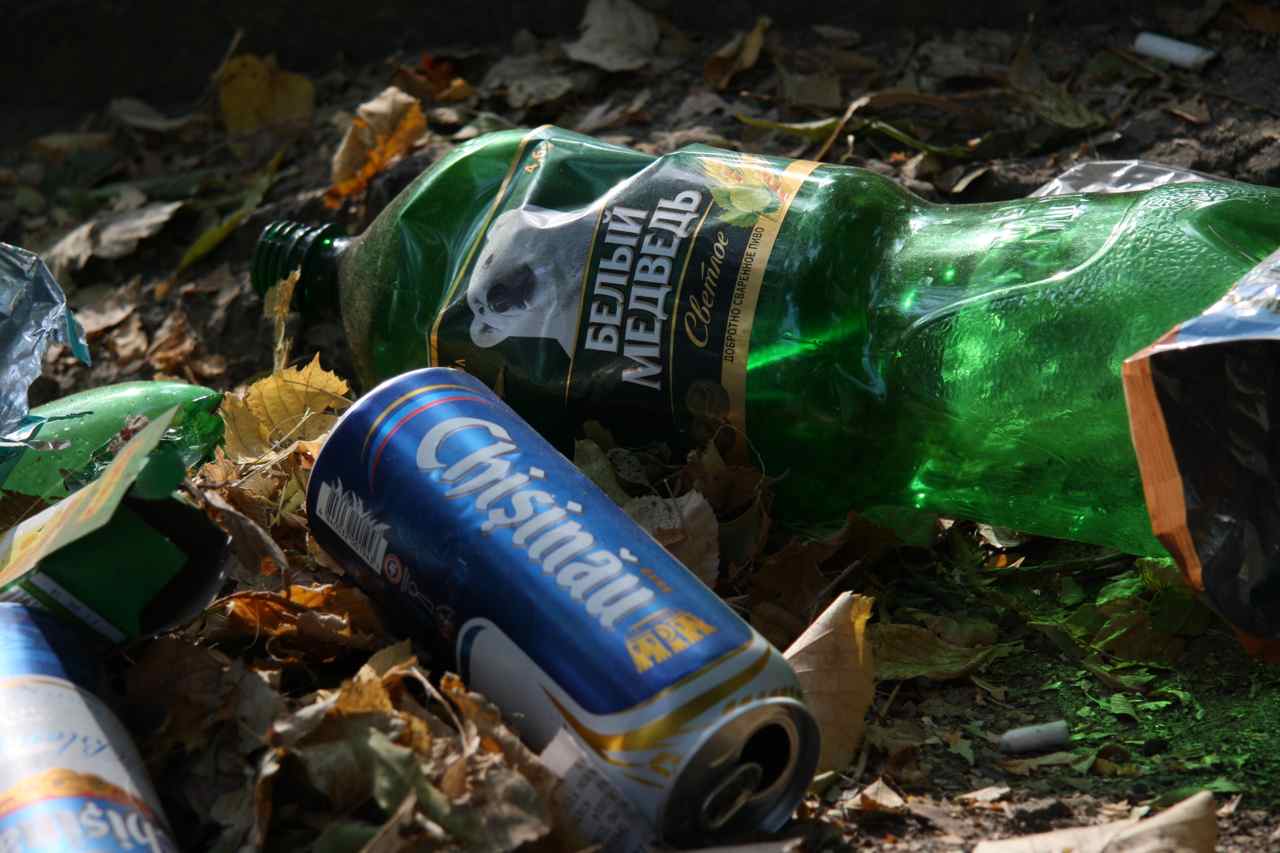Italy’s manufacturers have been checking out a relocation to Crimea, thanks to business trips organised by an anti-globalist party boss with ties to the Russian elite
By L’Espresso, shared with EIC Network and The Black Sea

Italy faces a general election in early 2018 and a deluge of far-right groups are fighting for a place in a likely coalition Government.
One of the most controversial parties is Forza Nuova (New Force), run by a neofascist former fugitive, Roberto Fiore, who has strong links to Russia.
Fiore’s motto is 'God, Fatherland, Family, Work', and he campaigns for a new deal for Italy’s workers and small businesses, free from the threat of globalisation.
This follows the same mantra of national self-reliance trumpeted by Marine Le Pen’s National Front in France.
But, according to our colleagues at Italian magazine L’Espresso, Fiore has been organising business trips for Italian entrepreneurs to invest - not in their home territory - but in the contested Ukrainian region of Crimea, annexed by Russia in 2014.
Founded in 1997 by former fugitives from Italian justice, Roberto Fiore and Massimo Morsello, Forza Nuova ticks every box on the far-right ideological checklist: the party is anti-abortion, pro-Christian, anti-immigration, anti-same sex marriage, anti-NATO, Eurosceptic, and anti-capitalist. Plus it is also close to the Kremlin.
The party's roots are in the neofascist underground movement from the late 1970s, Terza Posizione, of which Fiore was a major ideologue. Terza Posizione was a front for guerrilla group Nuclei Armati Rivoluzionari (Armed Revolutionary Groups), which carried out dozens of assassinations.
On 2 August 1980, the city of Bologna was rocked by a suitcase bomb in its railway station that killed 85 people. Responsibility for the attack fell on Nuclei Armati Rivoluzionari, which denied culpability. Fearing arrest, Fiore fled to London, where he obtained refugee status.
While in the UK he became friends with Nick Griffin, who would later become leader of the far-right British National Party, and he built up a business in student travel.
But how did Fiore gain a home in the UK? According to a 1991 document written by the Consultative Commission on Racism and Xenophobia in the EU, Fiore “had been an agent with the British Secret Service (MI6) since the early '80s” - an allegation Fiore denies.
In 2000, he returned to Italy to take charge of Forza Nuova, alongside Massimo Morsello. When Morsello died a year later, Fiore secured his place at the top.

Fiore is an admirer of Vladimir Putin and has been a regular visitor to Russia on official delegations. His party's vehement anti-NATO, Eurosceptical and Christian fundamentalist line is close in spirit to that of Putin’s United Russia party.
In 2015, Fiore participated in the Conservative Forum in St. Petersburg alongside Europe's senior neofascist leaders. According to intelligence sources, in exchange for help for the Russian cause in Europe, extremist movements did “receive [Russian] economic support”. There is no proof that Forza Nuova gained cash from Russia.
But the relationship goes back before then - Fiore went on an official visit to Russia in 2012 for a two-day meeting called ‘Russian-Italian Trade Dialogue’ in Nizhny Novgorod, a large industrial city 400 km east of Moscow.
The summit programme stated that Fiore was there in a new capacity - that of director of the Italian-Russian organisation, Associazione Alexandrite.
In February 2014, following the revolution in Ukraine against a pro-Russian administration, Russia moved to take over the Crimean peninsula.
In a near-bloodless coup, the region fell under Putin’s control. But the Kremlin was left with a problem: Crimea was poor, isolated from Russia by water, and its already weak economy was facing decimation following the break from Kyiv. To keep the territory would cost Russia billions of dollars in subsidies.
What was the solution?
Foreign investment.
Russia opened an investment portal in English promoting a Free Economic Zone in Crimea. The peninsula was to become Russia’s own tax haven.
Russia’s propaganda machine boasted of plans by Italians to invest 300 million Euro in Crimea’s wine industry, and 250 million Euro from Germans in recycling, hotels and tourism. This is despite both Germany and Italy recognising Crimea as territory belonging to Ukraine - and not Russia.
In 2014, Fiore's Associazione Alexandrite organized business trips for Italians to Russia - and the delegation headed straight to Crimea.
Interestingly, Fiore’s name was no longer visible on official documents relating to the association at that time.
But businessmen who participated in those meetings state that everything was run from Italy by the Forza Nuova boss, who went on to orchestrate a second delegation to Crimea in 2015.
“A friend introduced me to the association, of which I knew Mr. Fiore was the president,” says Diego Ebau, a small business entrepreneur from Sardinia, who participated in the trips. “My goal and that of other dozens of companies who were there was not political. We just wanted to know more about the benefits of investing in Crimea.”
According to Ebau, if he invested at least 50,000 Euro in the peninsula, he would pay zero taxes for the first five years and enjoy a six per cent cap on taxes thereafter.
What could be more inviting for investors suffering from Italy’s labyrinthine tax regime, and the country’s incessant recessions?
But encouraging Italian firms to set up shop in Crimea is an odd move for this neofascist party, because at the core of its ideology is the defence of economic sovereignty, and a hatred of globalisation due to its threat to Italian micro-businesses.
Now some companies from Fiore’s Crimea trips have plans to shut down their factories in Italy and reopen them in Crimea.
“I left the Alexandrite Association after two trips, because I prefer to do things on my own,” says Ebau, “but I know that a Puglia textile company is already in the process of moving production over there. And to tell the truth, I have plans myself: together with another Sardinian entrepreneur, we are looking to open a marble processing company in Crimea.”
Original article in Italian by Andrea Palladino, Giovanni Tizian, and Stefano Vergine at L’Espresso. This version by The Black Sea
Russia and the EU act towards Moldova like two fat men fighting over an after-dinner mint

Chisinau is dark.
In the subterranean walkways, lights are scarce, burnt out, flashing or dim.
People walk in darkness. There are few lamps on the street.
In the playgrounds in the evening, children sway on the swings and climb on plastic castles. They can’t see each other. Parents sitting on nearby benches can’t see them, only hear their laughing and screaming.
By the main square, people wait at the edge of the street for Mercedes minibuses to take them home.
But you can’t make out the number on the vehicle until it is a meter from your face - too late to hail it down.
Whenever you see the shape of a minibus emerging from the shadows, you reach out your arm. They all stop for you. Even if they don’t want to. Even if they don’t take you where you want to go.
When you board a bus, inside it is packed with bodies. All the seats are occupied and there are as many people standing as it is possible for the bus to hold.
They are crushed against the windows. Their heads bent under the ceiling. If you stand, you cannot see where you are supposed to get out. You can only guess at the road - and when you arch your face, wipe the steam from the glass and finally manage to see outside, it is too dark on the street to be sure of the location.
“Where are we?” you ask the people in the bus, “and where are we going?”
I don’t know why there is so much dark.
Maybe the city believes there are not enough people willing to go out at night to merit lighting up the city. Maybe there is no money for electricity.
But it discourages meetings in the late hours. It inhibits communication. It makes people afraid of footsteps behind them. Builds suspicion where there is no threat. It creates borders where none should exist.

Chisinau is a city where you hear Russian in one bar, Romanian in the next, both on the street and you can speak in both languages - even mix them up - and people understand.
In the towns to the west, they speak more Romanian and to the north, more Russian. Communism's policy of 'the Soviet churn' of moving races from one part of the Union to another created a rich but confused identity at its western border.
Now it has ambitious people with a vision too narrow for the country. Those I stayed with in Chisinau (who spoke Russian, Romanian and French) spend their evenings learning English and German by Skype. There is a desire to transcend Moldova, whatever that may be.
Almost half the workforce is abroad, on construction sites in Moscow, cleaning hotels in Milan, in nursing homes in Lyon, leaving a state of pensioners and kindergartens.
This is a nation in transit. Unsure of what it is, but aware of what it is not. It’s not Romania. It’s not Ukraine. It’s not Russia. Moldova has not yet fully become Moldova.
Torn, yes, but peaceful for now. Although there is pressure from larger states nearby.
Romanian politicians talk up the idea of a union with Moldova.
Prime Minister Victor Ponta, in his bid to be President this year, has a ‘five-year plan’ for Moldova to be part of Romania within the EU.
Meanwhile President Traian Basescu and centre-right candidates for head of state Monica Macovei and Klaus Iohannis also casually employ unionist rhetoric.
But what does Moldova say about that? Only ten per cent want a union with their western neighbour.
This willingness to redraw the map of Europe raises the hopes of people who wish for Moldova to be part of Romania. But it is not realistic.
Some politicians in Romania who I have spoken to, who publicly endorse a union, say privately “I don’t mean it”.
They use this language because the ideal of a greater Romania wins votes from locals and Moldovans with Romanian passports.
Plus it has the added benefit of pissing off Russia - a game Romania has enjoyed ever since its entry into NATO.
But when Romania toys, Moldova trembles.
Russia does the same. It wants Moldova to join its customs’ union - an open market rival to the EU. Posters in Chisinau from the Socialist Party, ahead of the elections next month, advertise the benefits of the union with Russia, Kazakhstan and Belarus.
At the same time, Russia enforces an embargo on the sale of Moldovan wine in Russia. Moscow is sending hundreds of ex-pat migrants back to their home country. In a nation of four million people, where 100,000s work in Russia, this wounds the economy and job prospects of the people.
Russia offers one hand out to greet Moldova and, with the other, it punches Moldova in the face.
Moldova is being wooed and fooled by both the east and the west. But there is no long-term plan. They don't know what to do with the country.
To them, the Republic is important, but not that important. This is not Ukraine. This is not Poland. Moldova is disposable, but also significant. From a geopolitical point of view, the empires of Russia and the EU act towards Moldova like two fat men fighting over an after-dinner mint.
Meanwhile Moldova’s political class is equally deceptive. The politicians boast of their connection to western Europe, but the businessmen who back the politicians have financial links with Russia.
Their heart turns to Brussels, their wallet to Moscow.
But on the ground, there are bonuses to this.
From the people I spoke to, a major difference is that this year they have gained the right to travel visa-free through the Schengen space of the European Union, which they can add to their access to former states of the USSR, as well as Turkey and the Balkans.
Suddenly the poorest nation in Europe has the people with the greatest freedom of movement.
.jpg)
An evening in September. There are thousands of people out on the streets. In the distance in the town square is a stage flashing with red and white lights.
Chanteuse Sofia Rotaru is singing with Romanian lyrics, but when she ends a song, she shouts ‘Spasiba’ to the crowd.
The Cernauti-born 70s pop star is now in her sixties, but still packs a crowd when she gives a free concert, this time sponsored by Renato Usati, a businessman turned political opportunist, looking to advance in November's Parliamentary election.
Crowds have brought their children to see Sofia.
But the sound is distorted. She needs to shout to be heard. The stage is no more than a blurry figure surrounded by bright colours.
The audience is standing, watching, unmoved, not lip-synching to the songs or clapping their hands. No one is eating or drinking. No one seems to care. They are here because there is something going on and that something is free.
Two three-year old kids are chasing an empty plastic bottle down the street, moving between the legs of the audience, tripping up, falling down, getting up, grabbing the bottle again, throwing it, all the time laughing and shrieking with joy.
The children don't want to see Sofia.
They only want to watch a plastic bottle skipping down a pavement.
The crowd nearby turn away from the stage and watch the kids, with sympathy and envy.